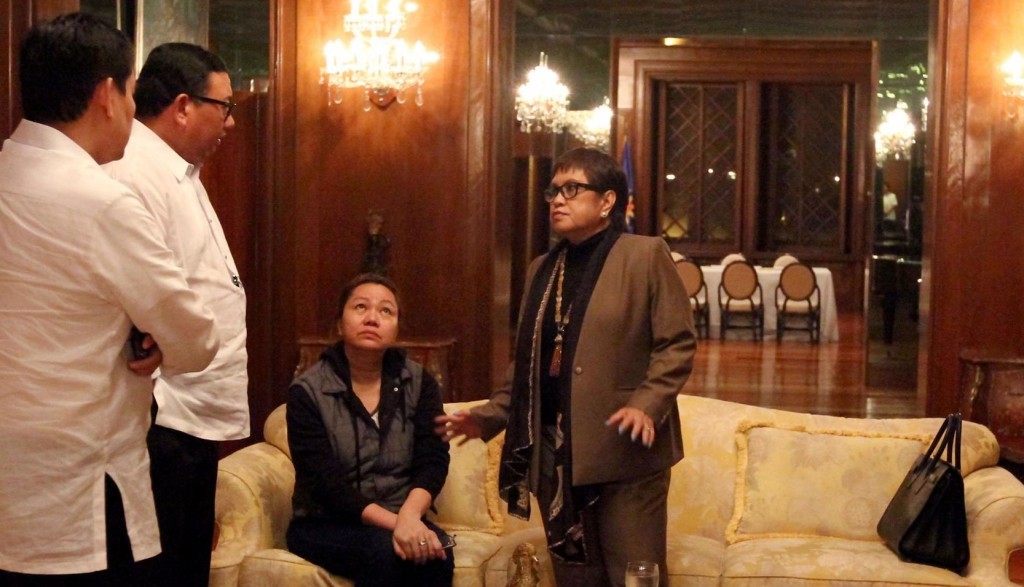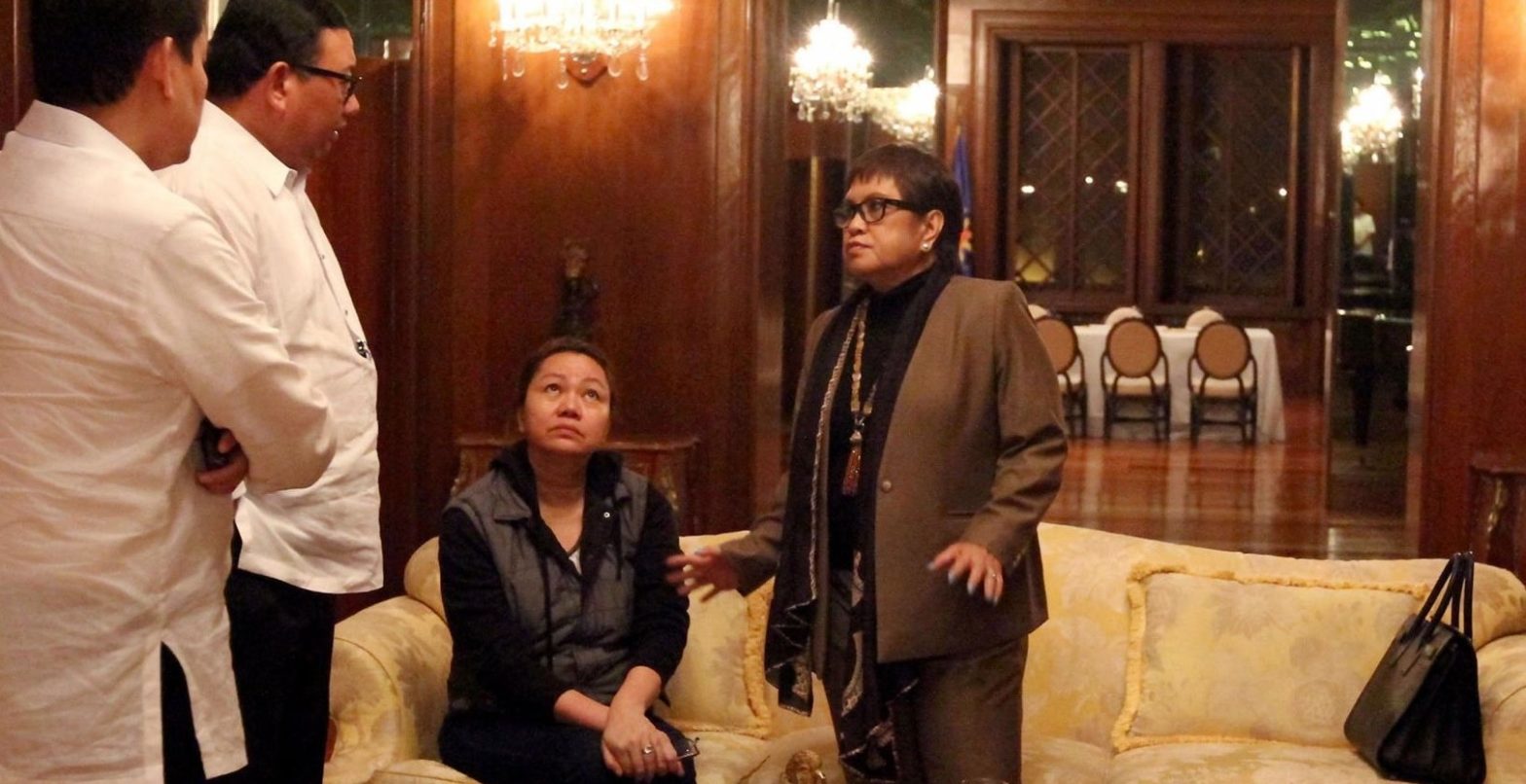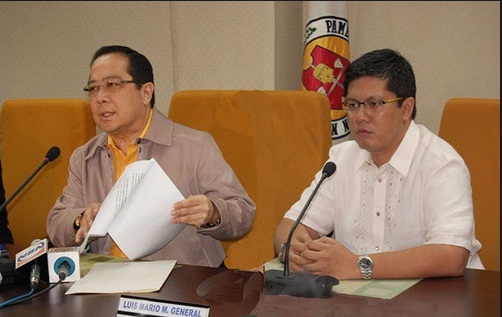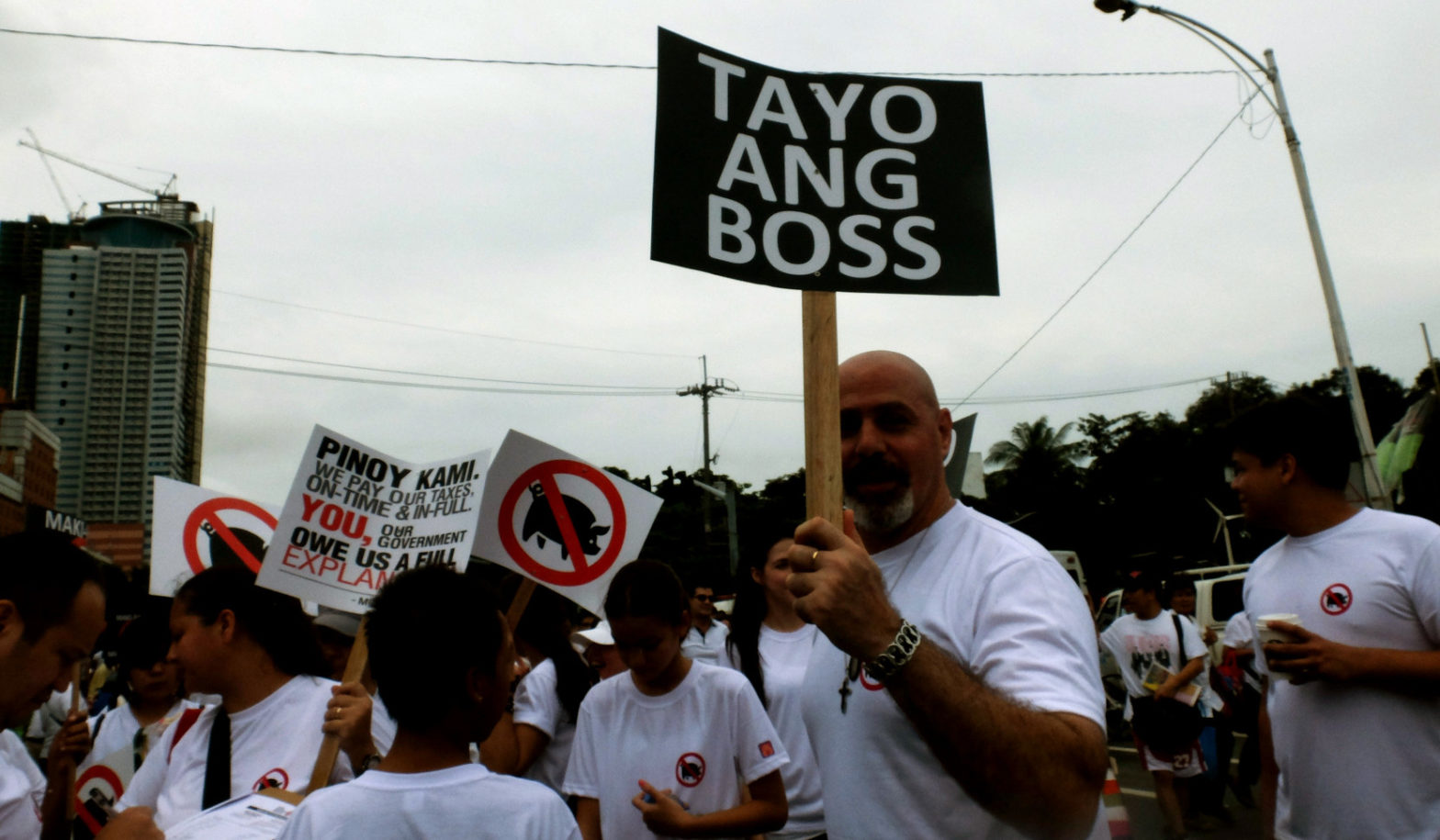
(Photo by:
Rodolfo Manabat / Malacañang Photo Bureau / PCOO)
By DANA BATNAG
IT WILL be a much-anticipated media event, but the filing of complaints against senators and congressmen allegedly involved in the pork barrel scam is unlikely to result in fireworks or other earthshaking political upheavals.
That’s because filing a complaint with the Ombudsman is just the start of a long process—one that may take years—to make public officials accountable for their misdeeds.
The National Bureau of Investigation filed on Monday afternoon plunder and malversation of public funds charges against Senators Ramon “Bong” Revilla Jr., Jinggoy Estrada and Juan Ponce Enrile, and businesswoman Janet Lim-Napoles before the Office of the Ombudsman in connection with the misuse of the Priority Development Assistance Fund, more commonly known as “pork barrel.”
“It’s (The filing of the case before the Ombudsman) just the first step to filing formal charges before the Sandiganbayan,” says lawyer Harry Roque, who teaches Constitutional Law at the UP College of Law. “The filing of the criminal complaint triggers the duty of the Ombudsman to conduct a preliminary investigation.”
“We’re not even sure there is a case because many cases have been dismissed at the Ombudsman,” Roque added.
Justice Secretary Leila de Lima is scheduled to file today a complaint of plunder before the Ombudsman against senators and members of the House of Representatives.
Last Friday, the group Citizen Crime Watch has filed a complaint against five senators and 23 congressmen, along with businesswoman Janet Lim Napoles, for violating the Anti-Graft and Corrupt Practices Act.
Napoles is accused of channeling funds from lawmakers’ Priority Development Assistant Fund (PDAF) into fictitious non-government organizations, and giving the lawmakers a share of the money.
The DOJ is expected to file cases against Senate Minority Leader Juan Ponce Enrile, Ramon Revilla Jr, Jose “Jinggoy” Estrada, Ferdinand Marcos Jr and Gregorio Honasan, among others.
R.A. 6770, the law that created the Office of the Ombudsman, requires it to “act promptly on complaints filed in any form or manner against officers or employees of the Government, or of any subdivision, agency or instrumentality,” and tasks the Office to enforce administrative, civil and criminal liability.
The law gave the Ombudsman the power to discipline public officials by prosecuting them, recommending their removal from office or suspension, demotion, fine and censure.
This power covers “all elective and appointive officials of the Government and its subdivisions, instrumentalities, and agencies,” but not senators and congressmen.
Section 21 of R.A. 6770 exempts “officials who may be removed only by impeachment, members of Congress, and the Judiciary.”
The process may also take longer because the Ombudsman is not covered by the 90-day period during which a fiscal is supposed to determine whether or not charges should be filed in court. Roque says it can take as long as two years for the Ombudsman to make that evaluation.
Neither will a complaint for plunder automatically translate into a plunder charge: Roque says it is the Ombudsman that determines what charges will be filed, not the complainant.
“There is a prayer in the complaint, but that is not binding,” he said.
Once a case is filed in court, the Sandiganbayan may issue a warrant of arrest against the suspects, including the legislators. In Santiago v. Sandiganbayan, the Supreme Court said that the doctrine of separation of powers does not mean that only Congress can discipline its members.
In 1996, the Sandiganbayan ordered the preventive suspension of Sen. Miriam Defensor-Santiago on the basis of graft charges filed against her, because the Anti-Graft and Corrupt Practices Law provides that public officers accused of violating the RA 3019 “or other offense involving fraud upon government or public funds or property” may be suspended from office.
Santiago questioned the order, but the Supreme Court ruled “the doctrine of separation of powers by itself may not be deemed to have effectively excluded members of Congress from RA 3019 nor from its sanctions” and upheld the Sandiganbayan decision.
Roque says, however, that Santiago was never suspended. “I remember that; it was never observed.” The position of Congress, he says, is that “only the body itself may suspend its members.”
Senate President Franklin Drilon pointed out in a TV interview that the Sandiganbayan may issue a warrant of arrest, which would in effect be a suspension because it would prevent a legislator from attending session.
When former President Gloria Macapagal-Arroyo was charged with a non-bailable offense, Drilon said she was “for all practical purposes suspended because she is under physical detention. That is the effect of a warrant of arrest.”
So expect no fireworks when a complaint is filed at the Ombudsman, even if the complaint names legislators suspected of skimming off money for projects meant for the poor.
“This is only the beginning of a very long and very slow process in the Philippines,” Roque says, pointing out that the Ombudsman has only a 10 percent rate of conviction.
(Dana Batnag is a veteran journalist who recently completed her Juris Doctor degree from the University of the Philipines College of Law.)




